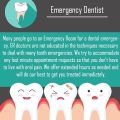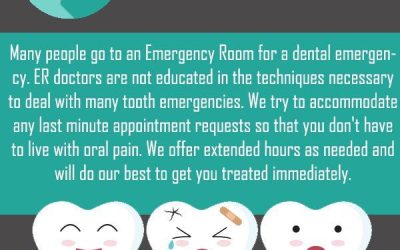So you’ve just finished enjoying a delicious meal and suddenly, you notice something alarming: your mouth is filled with a pool of blood. Panic sets in as you try to figure out what could be causing this severe oral bleeding. Is it something serious? Could it be a sign of a more significant health issue? In this article, we will explore the potential causes of severe oral bleeding, discuss when you should seek medical attention, and provide tips on how to manage and prevent this unsettling situation.
Causes of Severe Oral Bleeding
Gingivitis
Gingivitis is the most common cause of severe oral bleeding. It is an early stage of gum disease characterized by inflammation and infection of the gums. Poor oral hygiene, bacterial plaque buildup, and certain health conditions can contribute to the development of gingivitis. When left untreated, it can progress to more serious forms of periodontal disease.
Periodontitis
Periodontitis is an advanced form of gum disease that can cause severe oral bleeding. It occurs when gingivitis is left untreated and the infection spreads to the gums and surrounding structures, including the jawbone. Periodontitis causes the gums to recede, creating pockets where bacteria can accumulate and further damage the gums and bone. This can lead to significant bleeding during brushing, flossing, or even regular activities such as eating.
Oral trauma
Injuries to the mouth can result in severe oral bleeding. Accidents, falls, sports injuries, or any trauma that causes direct damage to the oral tissues can cause bleeding. This can include lacerations to the gums, tongue, or cheeks, fractured teeth, or dislodged dental restorations. It is important to seek immediate medical attention for any oral trauma to assess the extent of the injury and prevent complications.
Oral surgery
Oral surgery procedures such as tooth extraction, dental implant placement, or gum surgery can cause temporary bleeding. It is normal to experience some bleeding immediately after surgery, but it should subside within a few hours or days. Excessive or prolonged bleeding after oral surgery may indicate a complication and should be evaluated by a dentist or oral surgeon.
Bleeding disorders
Certain medical conditions and medications can lead to bleeding disorders that manifest as severe oral bleeding. Hemophilia, Von Willebrand disease, or the use of blood-thinning medications like warfarin or aspirin can impair the blood’s ability to clot properly, resulting in excessive bleeding. If you have a known bleeding disorder or are taking blood thinners, it is important to inform your dentist or oral healthcare provider before any invasive dental treatment.
Symptoms and Signs
Visible blood in saliva
One of the most obvious signs of severe oral bleeding is the presence of blood in saliva. You may notice that your saliva appears pink or red and may see streaks of blood when spitting or coughing. This can be alarming and should prompt immediate attention from a dental professional.
Excessive bleeding when brushing or flossing
If you experience excessive bleeding while brushing or flossing your teeth, it may indicate a problem with your oral health. While minor bleeding can occur occasionally, persistent or heavy bleeding during oral hygiene routines is a cause for concern and should be assessed by a dentist.
Persistent bad breath
Halitosis, or persistent bad breath, can be a symptom of severe oral bleeding. The presence of bleeding gums or infected oral tissues can contribute to foul-smelling breath. If you notice that your breath has a consistently unpleasant odor despite maintaining good oral hygiene, it is important to consult with a dentist.
Swollen or bleeding gums
Swollen or bleeding gums are common signs of gum disease and can accompany severe oral bleeding. If your gums appear red, swollen, or bleed easily, it is important to seek dental care to prevent further progression of gum disease.
Difficulty speaking or eating
Severe oral bleeding can make it challenging to speak or eat comfortably. Bleeding gums or oral tissues can cause pain or discomfort, making it difficult to chew or articulate properly. If you experience difficulties with speech or eating, it is crucial to address the underlying cause of the bleeding.
Complications
Anemia
Severe and prolonged oral bleeding can lead to anemia, a condition characterized by a decrease in the number of red blood cells or a decrease in their ability to carry oxygen. Anemia can result in fatigue, weakness, shortness of breath, and other symptoms. Prompt treatment of severe oral bleeding is essential to prevent the development or worsening of anemia.
Infection
Bleeding gums and oral tissues provide an entry point for bacteria, increasing the risk of infections. Infected gums can cause pain, swelling, and further damage to the oral tissues. In severe cases, the infection can spread to other parts of the body, leading to more serious complications.
Septicemia
If an oral infection is left untreated, it can progress to septicemia, also known as blood poisoning. Septicemia occurs when bacteria from the oral cavity enter the bloodstream, causing a systemic infection. This condition can be life-threatening and requires immediate medical intervention.
Diagnostic Tests
Physical exam
During a physical exam, a dental professional will visually examine your mouth, gums, and oral tissues for signs of bleeding, swelling, or infection. They may use special tools to measure the depth of gum pockets and assess the overall health of your oral cavity.
Medical history
A thorough medical history review is crucial in identifying potential underlying causes of severe oral bleeding. Your dentist may ask about your medication use, history of bleeding disorders or blood diseases, as well as any recent trauma or oral surgeries.
Blood tests
Blood tests can help determine your clotting ability and rule out any underlying medical conditions that may contribute to the severe oral bleeding. These tests may involve assessing your blood cell counts, clotting factors, or checking for the presence of various antibodies.
Treatment Options
Controlling bleeding through pressure and ice
Applying direct pressure to the bleeding area with a sterile gauze or tea bag can help promote clot formation and control bleeding. Cold compresses or ice packs applied externally can also help constrict blood vessels and reduce bleeding.
Medications to promote clotting
Depending on the severity and underlying cause of the oral bleeding, your dentist may prescribe medications to promote clotting. These may include topical or systemic medications that help control bleeding and enhance the body’s natural clotting mechanisms.
Oral rinses and mouthwashes
Antibacterial mouth rinses or mouthwashes may be recommended to help control infection and promote healing of the oral tissues. These products can help reduce bacterial growth and the risk of further bleeding.
Surgical intervention
In cases where severe oral bleeding is due to gum disease or oral trauma, surgical intervention may be necessary. Procedures such as gum grafting, scaling and root planing, or tooth extraction can be performed to address the underlying issues causing the bleeding.
Addressing the underlying cause
Treating the underlying cause of severe oral bleeding is essential for long-term management. This may involve addressing gum disease through improved oral hygiene practices, managing underlying health conditions, or adjusting medication regimens under the guidance of a healthcare professional.
Prevention Strategies
Maintaining good oral hygiene
Practicing proper oral hygiene is key to preventing and managing severe oral bleeding. This includes brushing your teeth at least twice a day, flossing daily, and using antibacterial mouthwashes to reduce plaque buildup and prevent gum disease.
Regular dental check-ups
Regular dental check-ups and professional cleanings are crucial for early detection and treatment of gum disease or other oral health issues. Your dentist can identify any signs of bleeding, inflammation, or infection and provide appropriate interventions.
Avoiding tobacco and alcohol
Smoking and excessive alcohol consumption can contribute to gum disease and increase the risk of severe oral bleeding. Quitting smoking and moderating alcohol intake can play a significant role in preventing oral health problems.
Treating underlying health conditions
If you have underlying medical conditions, such as diabetes or autoimmune disorders, it is important to manage them effectively. Proper management of these conditions can help reduce the risk of gum disease and severe oral bleeding.
Managing stress
Stress can weaken the immune system and contribute to gum disease and other oral health problems. Finding healthy ways to manage stress, such as practicing relaxation techniques or engaging in physical activities, can help maintain oral health and prevent severe oral bleeding.
When to Seek Medical Help
Profuse bleeding that doesn’t stop
If you experience profuse bleeding from the mouth that doesn’t stop even with applied pressure, it is important to seek immediate medical help. This may indicate a severe underlying issue that requires urgent attention.
Bleeding accompanied by dizziness or fainting
If severe oral bleeding is accompanied by symptoms like dizziness, lightheadedness, or fainting, it may indicate significant blood loss. In such cases, urgent medical attention is necessary to assess and manage the condition.
Severe pain or swelling
Intense pain or swelling in the oral cavity can be a sign of severe infection or oral trauma. Seeking immediate medical help is essential to identify and address the underlying cause of the pain or swelling.
Signs of infection
If you notice signs of infection such as increased redness, swelling, or pus formation around the site of bleeding, it is important to consult with a dental professional. Oral infections can quickly worsen and lead to systemic complications if left untreated.
Home Remedies
Applying pressure using a sterile gauze or tea bag
If you experience minor oral bleeding at home, applying gentle pressure using a sterilized gauze pad or a moist tea bag can help control bleeding. Bite down on the gauze or tea bag for 15-20 minutes to allow the blood to clot.
Using a cold compress
Applying a cold compress or ice pack externally to the affected area can help constrict blood vessels and reduce bleeding. Place the cold compress on your cheek or lips for 10-15 minutes at a time. Do not apply ice directly to the skin.
Rinsing with saltwater
Gently rinsing your mouth with warm saltwater can help reduce inflammation and promote healing of oral tissues. Mix about half a teaspoon of salt in a glass of warm water and swish it around your mouth for 30 seconds before spitting it out.
Avoiding hot and spicy foods
To prevent further irritation and aggravation of the oral tissues, it is advisable to avoid hot and spicy foods while experiencing severe oral bleeding. Stick to soft, cool, and non-irritating foods until the bleeding has subsided.
Recovery and Aftercare
Follow-up appointments
After receiving treatment for severe oral bleeding, it is important to attend follow-up appointments with your dental professional. These appointments allow for monitoring of your healing progress and early detection of any potential issues.
Oral care instructions
Your dentist or oral healthcare provider will provide specific instructions for oral care following treatment for severe oral bleeding. These may include recommendations for gentle brushing, avoiding certain foods or activities, and the use of any prescribed medications or oral rinses.
Monitoring for recurrence
Regular self-checks and vigilant monitoring for signs of bleeding or other oral health problems are important for early detection of any potential recurrences. Report any concerns or changes in your oral health to your dental professional promptly.
Lifestyle modifications
To prevent future episodes of severe oral bleeding, lifestyle modifications may be necessary. These can include maintaining excellent oral hygiene practices, managing underlying health conditions, minimizing alcohol and tobacco use, and effectively managing stress levels.
Conclusion
Severe oral bleeding can be caused by various factors, including gum disease, oral trauma, oral surgery, and bleeding disorders. It is important to recognize the symptoms and signs, seek appropriate medical help, and follow the recommended treatment options. By practicing good oral hygiene, undergoing regular dental check-ups, and adopting healthy lifestyle habits, you can prevent severe oral bleeding and maintain optimal oral health. Remember, prompt attention to oral bleeding can help prevent potential complications and ensure a speedy recovery.












